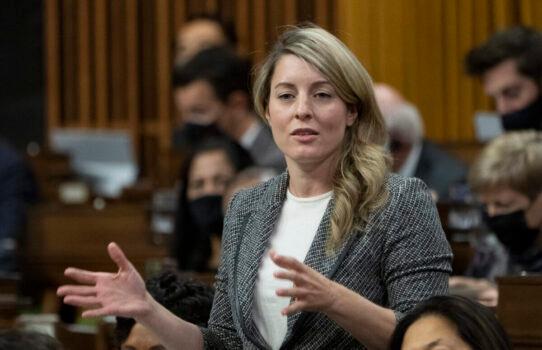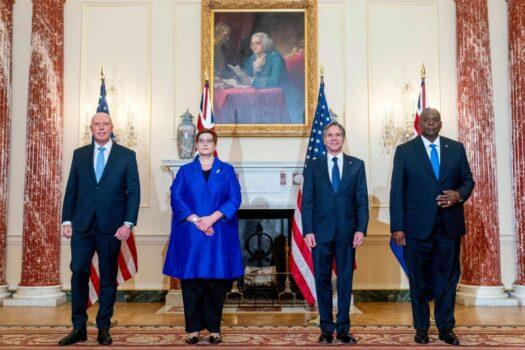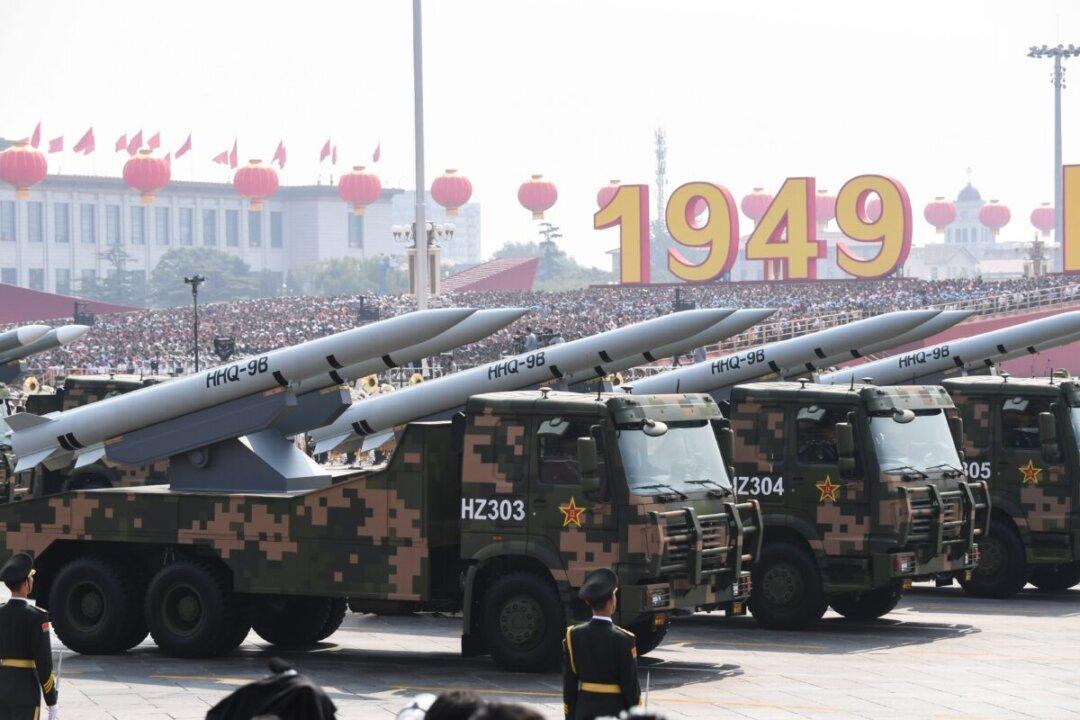Canadians continue to view China as the most negative adversary, with the majority of them believing that the communist state poses a threat to Canada’s national security, says a senior fellow at the Macdonald-Laurier Institute (MLI).
“Indeed, almost seven in ten Canadians believe China poses a threat to Canada, which is the highest of any country in this survey,” said Jonathan Miller, Indo-Pacific program director at MLI.
“I think Canadians are very clear-eyed about who their friends are and who their adversaries are, so this is something that we’ve noted in both years that we’ve done this polling.”
Miller made the comments during a webinar on Jan. 11 that brought together a panel of policy experts to discuss the polling results of what Canadians view as the most important issues facing the country beyond its borders.
Nearly two-thirds of Canadians maintain a negative view of China, with 35 percent “very negative” and 27 percent “moderately negative,” the poll says. Those with a higher “International Knowledge Score” view China most negatively at 85 percent, “suggesting that as knowledge about China’s actions increases, so too do negative views of the country.”
In terms of threats, China is seen as the “most serious” one among countries including Russia, Taliban-ruled Afghanistan, and Iran. Thirty-six percent of the respondents see China as a “serious threat” while 33 percent say the Chinese state poses a “moderate threat.”
The poll, however, noted that the stance taken in both views has “softened” compared to 2020. The negative view on China dropped 11 points from 73 percent, while “serious threat” is down 8 points from 44 percent.
“With the release of Michael Kovrig and Michael Spavor, opinions of China may have softened,” said MLI in a press release on Jan. 11. “Additionally, as the origin story of COVID-19 recedes from public debate, it is likely that the focus of Canadians has shifted from initial responsibility for the pandemic to other issues.”
Even so, Miller is positive that Canadians are still keeping their guard up against China’s agenda to gain global dominance.
“Canadians remain resolute in their skepticism on China and its increasingly assertive policies in the Indo-Pacific region and globally,” said Miller in a statement.
The poll shows 64 percent of Canadians believe Canada should build closer relationships with other democracies in the Indo-Pacific region.

“We need to be able to have a clear strategy in the region when it comes to trade, when it comes to also our relationship economically speaking, but also on human rights and democratic values and issues,” she said, while noting that it will be her focus “in the coming weeks and months.”
The poll indicates that 87 percent of the respondents believe that defending Canadian values such as human rights and democracy forms an important priority in the country’s foreign policy.
Balkan Devlen, senior fellow and Transatlantic Program lead at MRI, says the polling data also shows Canadians are willing to defend fellow democracies even if it doesn’t serve their interests much.
“Almost six in ten Canadians believe we should stand up for democracies even if our strategic interests are not at stake,” said Devlen, who is also adjunct research professor at the Norman Paterson School of International Affairs at Carleton University, in the webinar.
“This is true across demographic and geographic distribution and different populations.”
Additionally, the poll indicates that Canadians are more than twice as likely to side with other democracies than “acquiescing to the wishes” of multilateral institutions like the United Nations (54 percent to 23 percent, respectively)—a 4-point shift from the “multilateral” camp since 2020.
“Even though doing so may result in disagreement with international bodies, when forced to choose, Canadians are willing to pick our allies over multilateral equivocation.”

Miller says rather than frame the AUKUS alliance as a “tactical deal” about nuclear submarines between the three countries, it should expand its scope.
“It’s about defence technology,” Miller said in the webinar. “It’s about the future of the way that democracies see the Indo-Pacific region and the threats to that region, and Canada needs to be a part of that discussion.”
Nearly 40 percent of Canadians want to see an increase in defence spending—a 4-point increase from 2020, the poll stated, and 42 percent say the budget should be maintained at the same level.
When it comes to working with allies to stand up to authoritarian regimes like China, 85 percent of Canadians say it is important to do so, MLI said, while adding that the Five Eyes alliance “remains the most popular” international institution to Canadians among the G-7, European Union, NATO, World Health Organization, and United Nations.
Roughly one-quarter of Canadians believe that foreign interference occurred in the last federal election. Among those who think so, 35 percent of them suspect China is behind it.
Miller says foreign policy has become increasingly important, and though it may seem abstract to certain people, one only needs to talk to a soybean farmer to understand how the world is interconnected.
“The reality is that foreign policy, in today’s world, is intimately tied in with businesses, with civil society. And it is not just some sort of elite topic that deserves its own sort of focus that you need to, had to go to school for eight to 10 years to talk on,” he said.
“I think we'll realise very quickly, whether it’s something in Eastern or Central Europe, or whether it’s something in the Indo-Pacific, very quickly, these problems could become our problems, and in many ways, actually are our problems right now.”
The Greater Toronto and Metro Vancouver areas were oversampled to provide meaningful sample sizes, MRI said.





